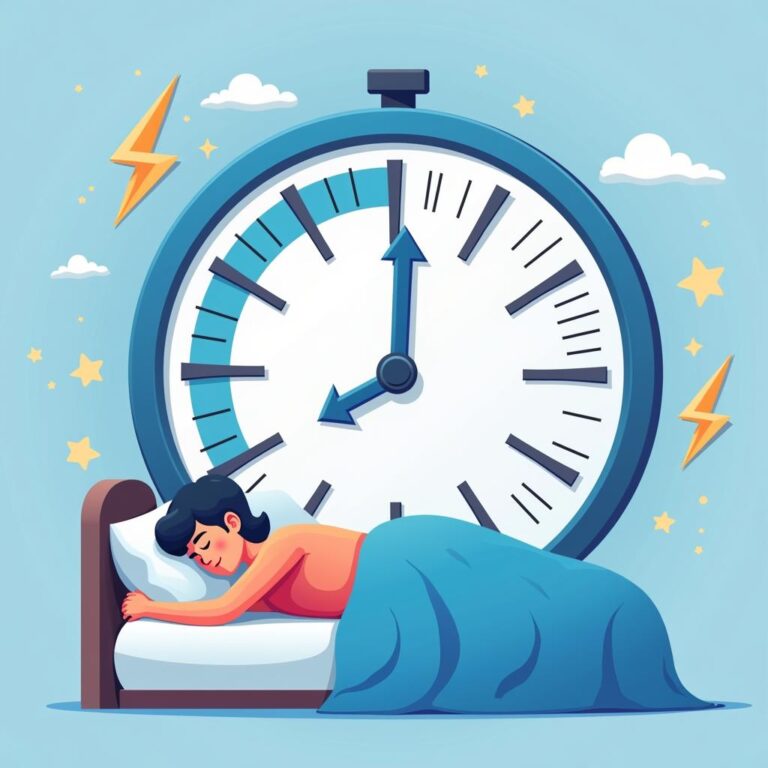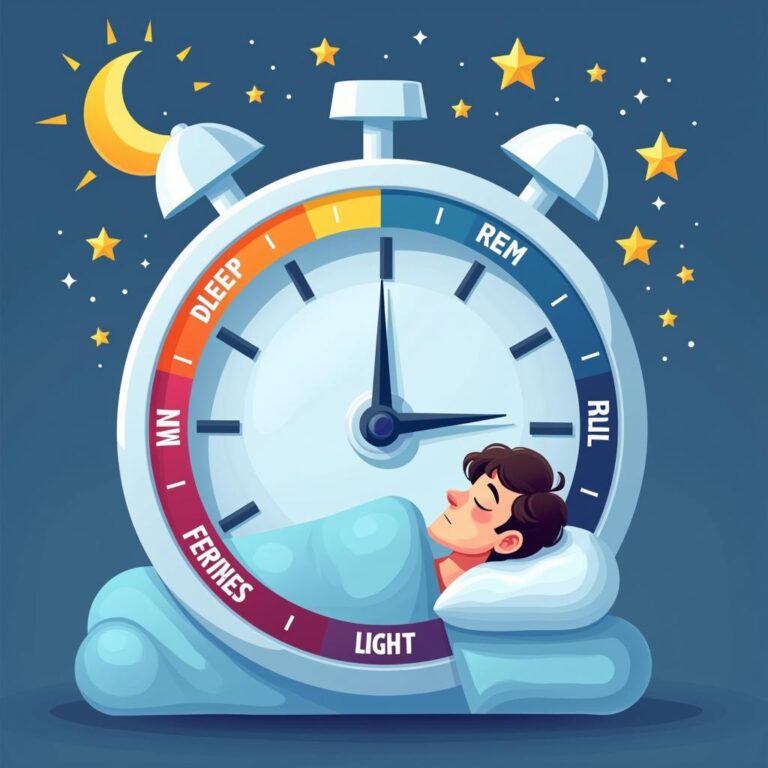Understanding Sleep Cycles and Their Impact on Work Performance
Sleep is an essential component of our daily lives that directly influences our physical health, emotional well-being, and cognitive function. The quality and quantity of sleep we achieve can have far-reaching effects on our work performance. In this article, we will explore the various sleep cycles, their stages, and how they impact our work productivity and overall performance.
What Are Sleep Cycles?
Sleep cycles refer to the progression through different stages of sleep throughout the night. Typically, a full sleep cycle lasts about 90 minutes and consists of several stages that alternate between REM (Rapid Eye Movement) sleep and non-REM sleep.
Stages of Sleep
- Stage 1 (Light Sleep): This is the transition from wakefulness to sleep. It lasts for a few minutes and is where a person can be easily awakened.
- Stage 2 (Light Sleep): In this stage, heart rate slows, and body temperature decreases. Sleep spindles and K-complexes appear, which are brain activity signals that prime the brain for deeper sleep.
- Stage 3 (Deep Sleep): Also known as slow-wave sleep (SWS), this stage is crucial for physical recovery and growth. It is harder to awaken someone in this phase, making it vital for restoring energy levels.
- REM Sleep: This stage is characterized by rapid eye movements, increased brain activity, and vivid dreaming. REM sleep plays a critical role in learning, memory consolidation, and emotional regulation.
Throughout the night, an individual cycles through these stages multiple times. Understanding these phases helps to illustrate how sleep quality can directly impact cognitive functioning during waking hours.
The Importance of Quality Sleep for Work Performance
Achieving sufficient quality sleep is paramount for excelling in work-related tasks. Research indicates that poor sleep quality and irregular sleep patterns can lead to decreased productivity, impair cognitive function, and affect emotional well-being.
Effects of Sleep Deprivation
When individuals do not get enough sleep, they may experience symptoms such as:
- Decreased Concentration: Lack of sleep severely hampers attention, alertness, and the ability to concentrate. This can lead to mistakes and a decrease in work quality.
- Impaired Decision-Making: Sleep deprivation affects the prefrontal cortex, a brain area responsible for decision-making and problem-solving. This impairment can lead to poor choices and decreased work performance.
- Reduced Productivity: Fatigue can lead to lowered productivity levels, increased errors, and a decreased ability to work collaboratively.
- Mood Disorders: Insufficient sleep can contribute to feelings of irritability, anxiety, and stress, negatively affecting workplace relationships and teamwork.
Understanding the Impact of Sleep Cycles on Work Performance
By recognizing the significance of sleep cycles, workers can grasp how their sleeping patterns might be influencing their productivity. Various factors can affect these sleep cycles:
Consistency in Sleep Routine
Maintaining a consistent sleep schedule is fundamental in regulating sleep cycles. This involves going to bed and waking up at the same time daily, which helps to strengthen the body’s internal clock and enhance the quality of sleep.
Hygenic Sleep Environment
Creating a conducive sleep environment is vital for promoting uninterrupted sleep cycles. Elements like:
- Comfortable mattresses and pillows
- Controlled room temperature
- Minimized noise and light disturbances
can significantly improve sleep quality, allowing individuals to progress through vital sleep stages more effectively.
Understanding Individual Sleep Needs
Each individual has unique sleep requirements. While most adults need between 7-9 hours of sleep, some may require more or less. It is crucial to identify personal sleep needs and strive to meet them consistently to maintain optimal work performance.
Strategies for Improving Sleep Cycles and Work Performance
To enhance sleep cycles and ensure better work performance, the following strategies can be implemented:
1. Prioritize Sleep
Make sleep a priority just like any important work task. Schedule sufficient time for rest and avoid late-night work sessions that can disrupt sleep patterns.
2. Create a Wind-Down Routine
Engaging in relaxing activities before bedtime—such as reading, meditating, or gentle stretching—signals to the body that it is time to wind down and promotes a smoother transition into sleep.
3. Limit Stimulants
Reduce consumption of caffeine and nicotine, especially in the hours leading up to bedtime, as these substances can interfere with the ability to fall asleep and disrupt natural sleep cycles.
4. Embrace Daylight Exposure
Natural light exposure during the day supports the regulation of circadian rhythms, enhancing alertness and mood. Aim to spend time outdoors and near windows to maximize light exposure.
5. Consider Sleep Supplements
If natural methods fall short, consider consulting a healthcare professional regarding non-habit-forming sleep supplements, such as melatonin, to support healthy sleep cycles.
Conclusion
Understanding sleep cycles and their impact on work performance is a critical aspect of achieving optimal productivity and well-being. By recognizing the essential stages of sleep and implementing effective strategies to improve sleep hygiene, individuals can enhance their cognitive abilities, emotional health, and overall job performance. Prioritizing quality sleep leads to a more engaged, productive, and healthier work life.







